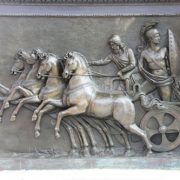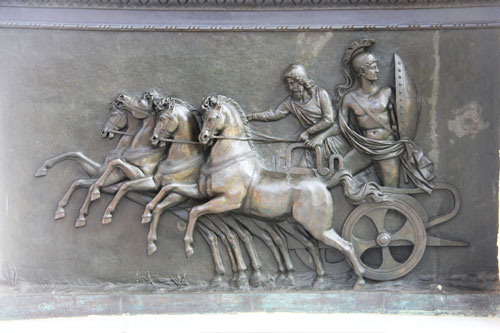New Year Predictions
These things I have spoken to you, that in Me you may have peace. In the world you will have tribulation; but be of good cheer, I have overcome the world. (John 16:33)
At the start of a new year people offer all sorts of predictions. I believe we could take this statement from Jesus as a prediction for the year 2018 – or any year. See what Jesus predicts for this coming year.

First, In the world you will have tribulation. You can count on it – you will face tribulation this year. The ancient Greek word translated tribulation has the idea of stress or pressing. You will face stressful and pressing times this year, and Jesus promised it would be so. You will have a time of rest and unending happiness – but that is for heaven, not for earth. When we become followers of Jesus Christ we may bring fewer problems upon ourselves, but we definitely still have them.
Understanding this removes a false hope. Struggling Christians often hope for the day when they will laugh at temptation and life will be one effortless victory after another. We are promised struggle as long as we are in this world; yet there is peace in Jesus. Your current area of struggle may one day pass away, but after that there will be new territory to conquer for God.
Second, we are promised something greater than tribulation: Be of good cheer, I have overcome the world. In this Jesus shouted out the truth of His victory. It’s an amazing statement from the Man about to be arrested, forsaken, rejected, mocked, tortured and executed. Judas seemed to overcome Him. The religious authorities seemed to overcome Him. Pilate seemed to overcome Him. The mob shouting “crucify Him” seemed to overcome Him. The soldiers supervising His crucifixion seemed to overcome Him. Even death and the grave seemed to overcome Him. But their seeming victory did not last long. The glory of the resurrection made it clear that Jesus could truly say, I have overcome the world.
Knowing all this, Jesus made a sincere offer. He offered us the gift of good cheer for the tribulation we must face. The idea of that phrase is really more “take courage” than “be cheerful.” We can take courage, knowing that Jesus has overcome the world.
Remember the circumstances surrounding this opening statement to the verse: These things I have spoken to you, that in Me you may have peace. This offer of peace was made in the most unlikely circumstances. At that very minute, Judas met with Jesus’ enemies to plot His arrest. Jesus knew that He would be arrested, forsaken, rejected, mocked, humiliated, tortured and executed before the next day was over. We think that the disciples should comfort Him – yet Jesus had peace for Himself and enough to give to others.
Finally, notice that Jesus did not promise peace, but He offered it. He said, you may have peace. People can follow Jesus yet deny themselves that peace. We gain the peace Jesus offered by finding it in Him. Jesus said, that in Me you may have peace. We won’t find real peace anywhere else other than in Jesus.
This is your year. We can predict tribulation. We can look back on Jesus overcoming the world. When we really receive His victory as our own, we can have peace. That’s one prediction sure to come true.

















